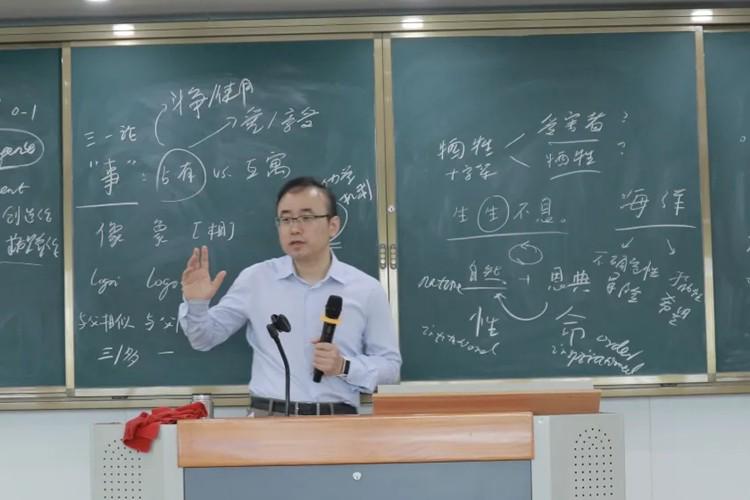A program named "Three Lectures on Christian Theology" was conducted at Guangdong Union Theological Seminary, with nearly 70 pastoral staff from Guangzhou churches participating.
Dr. Qu Xutong, a tenured associate professor, doctoral supervisor, and postdoctoral co-supervisor in the Department of Philosophy at the School of Humanities, Tsinghua University, lectured from May 24 to 25 in the Guangzhou CC&TSPM’s pastoral class for the second course of the second quarter of 2024, said Guangzhou CC&TSPM.
Dr. Qu’s main research interests include modern and contemporary German theology, the history of Chinese Christian thought, German philosophy, and ancient Greek philosophy.
In this course, Dr. Qu lectured on "Trinitarianism," "The Doctrine of God," and "The Bible and Biblical Interpretation." Combined with traditional systematic theology, he utilized concepts of Chinese theology to expound on Christology through the concept of "image and likeness," Trinitarianism through the idea of "moderate and harmony," as well as anthropology and ecclesiology. He explored types of speculative reasoning and argumentation, comparing the differences between ancient Greek and Judeo-Christian doctrines of God. From distinctions between the word of God and sacraments, hearing and seeing, he extended discussions to the concern with certainty and uncertainty. He compared biblical interpretations at churches in ancient time, the medieval period, and the Reformation era, clarifying the functions and effects of revelation, writing, and preaching. Dr. Qu emphasized that theology should be contextualized and concrete rather than formalized.
During the Q&A and discussion sessions, the pastoral staff asked Dr. Qu questions on various topics, including the unity and differences in church pastoral concepts, the humanistic origins of Christian faith, the relationship between reason and revelation, and the comparison between oral and written traditions. Dr. Qu guided the pastoral staff to explore these questions from multiple perspectives, including philosophy, theology, sociology, historical context, text, and context.
- Translated by Abigail Wu












